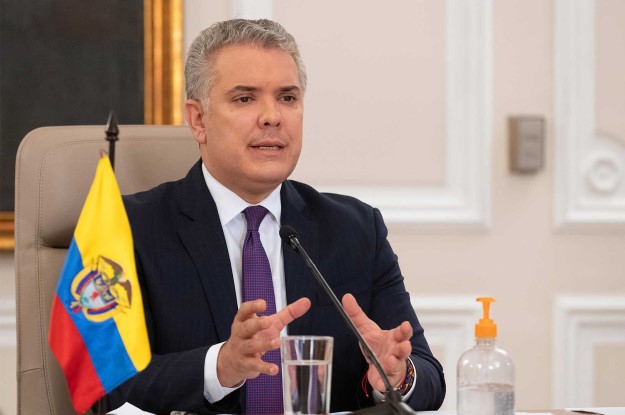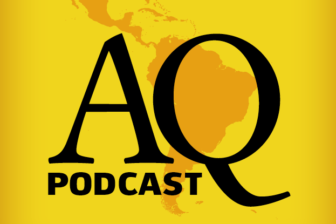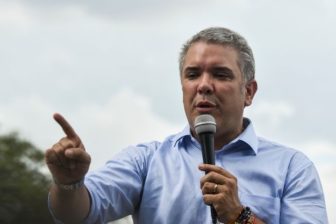BOGOTÁ – August 7 marks the second anniversary of Iván Duque’s inauguration as Colombia’s president. He entered office on a pro-business platform that included promises to reform Colombia’s tax structure, modernize its economy and attract foreign capital. But Duque struggled to enact his policy agenda in the first year of his presidency, and the current health and economic crisis have made it even more difficult. Below are the five most pressing issues his administration and party will face in the coming two years as they look to position themselves for the 2022 presidential election.
- Leading Colombia through COVID-19
The biggest challenge for Duque will be to keep the economy afloat and get ahead on Colombia’s recovery. The president has been lauded internationally for his science-based approach to fighting the coronavirus, although mayors were the first to push for quarantines and lockdown measures. Meanwhile, the government has stumbled at several points in its response to the virus. Duque’s relief programs for small and medium businesses, for example, have been criticized for falling short of their stated objectives and failing to keep businesses alive throughout the pandemic. In another symbolic misstep, the government procured over 300 ventilators from China and sent them to the Bogotá Department of Health, only to find out some had software defects. While nightly television appearances helped comfort and reassure many Colombians in the early weeks of the pandemic, the worsening infection rate and a projected contraction in GDP of nearly 8%, according to the IMF, will increase the challenge going forward.
- Stomping out corruption within
Corruption scandals have presented an additional challenge. Allegations surfaced in March that Duque’s 2018 presidential campaign had received donations from a former money launderer for narco-traffickers. There is skepticism, moreover, surrounding the role of Attorney General Francisco Barbosa, a close friend of Duque’s, in investigating the case. Barbosa himself is in hot water after he took his wife and daughter on a government plane to the Caribbean island of San Andrés where he conducted official business, breaking the quarantine rules in Bogotá. There have also been scandals involving the misappropriation of COVID-related funds, and issues surrounding corruption at the departmental or municipal level are likely to affect how the public credits Duque with confronting corruption – the issue of highest concern to voters, according to the latest Gallup Poll.
- Calming social unrest
Patience with Duque’s administration was already thin as protests gripped Colombia in November 2019. The government seemed responsive to protesters’ demands, which ranged from education reform to the protection of social leaders and improvements in healthcare. The pandemic has put substantial reforms on the back burner, but large-scale demonstrations could soon return as the economy moves through various stages of lockdown and unemployment takes its toll. And as we saw in the United States in June, a single event can trigger protests, even if health authorities haven’t authorized marches and protests.
- Implementing the peace agreement
As a candidate, Duque took advantage of dissatisfaction with the peace agreement that former President Juan Manuel Santos reached with the FARC rebel group. But as president, he has faced substantial criticism for not putting the necessary political will behind the agreement’s implementation. Critics point to the state’s failure to protect former FARC rebels, more than 200 of whom have been murdered since giving up arms. Many social leaders, including local politicians, environmental defenders, and indigenous and Afro-Colombian activists have met the same fate, murdered for standing in the way of narco-trafficking and coca cultivation. Efforts to reintegrate former rebels and engage in agrarian reform have been lackluster at best. And the encroachment of armed groups into the power vacuums left by the FARC has now become a major obstacle in the government’s strategy to promote “peace with legality” and to secure territorial control in the country’s distant rural areas.
- Navigating a complicated geopolitical panorama
Finally, Venezuela’s collapse will continue to present multiple challenges to Duque’s government. Colombia’s policy on Venezuela has pitted the country against powerful adversaries, such as Russia and China, whose entrenched economic and political interests in Venezuela are dependent on the regime’s stability. Public support for Duque’s early bet on regime change in Venezuela and unrelenting faith in Juan Guaidó as the country’s legitimate leader might begin to erode, although Colombian public opinion deeply disapproves of Maduro and his government.
How Duque confronts these issues will shape his administration’s second half, but also play a role in opposition candidates’ strategies in the 2022 election. Already, Gustavo Petro, the polarizing senator who Duque defeated in 2018, has focused his messaging on the economic insecurity facing Colombia’s lower and middle classes. And we can look for other figures to capitalize on any misstep as 2022 approaches.
—
Guzmán (@SergioGuzmanE) is the director of Colombia Risk Analysis (@ColombiaRisk), a political risk consulting firm based in Bogotá. Wilson (@Cam_A_Wilson) is an M.A. Candidate at the Johns Hopkins School of Advanced International Studies.







